What's New
Displaying results 1401 - 1410 of 4899
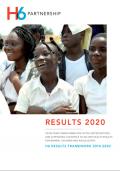
Resource | Publications,
The Framework will guide the H6 in shaping a more effective, results-based partnership. With little more than 30 months to achieve the 2020 milestones, the time for implementation is now.
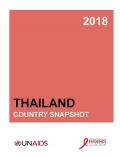
Resource | Reviews and Snapshots,
This provides an interactive report with colourful infographics and bite-size information on the HIV epidemic and response on key populations at higher risk of HIV in Thailand.

Resource | Publications,
The Annual Report documents UN Women’s work to foster women’s empowerment and gender equality around the world. It highlights some of the organization’s initiatives during the year and provides summary financial statements, a list of new programmes and projects, and contact information.
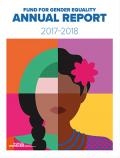
Resource | Publications,
Supported by photographs, data, infographics, and individual stories of impact, the 2017–2018 annual report highlights key aggregated results achieved by the Fund for Gender Equality’s (FGE) 26 active projects. In 2017 alone, FGE projects reached more than 48,700 direct beneficiaries (84 percent women) through evidence-based strategies to advance gender equality at the local, national, and regional levels. During the first semester of 2018, the FGE’s role as a crucial mechanism to promote women’s economic and political empowerment was reaffirmed through the outstanding results achieved by the supported women’s civil society organizations.
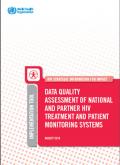
Resource | Tools,
In the past decade, national programmes and donor-funded projects have made great progress in reaching people living with HIV with life-saving treatment in countries across the globe. Measuring success of these initiatives requires strong monitoring and evaluation systems that produce high-quality data.
Efforts to ensure data quality, therefore, are not singular events occurring randomly. Rather, these processes need to become institutionalized as part of all routine data management processes.
The aim of this tool is to help countries that are planning to undertake rapid and robust data quality assessment (DQA) of national and partner data quality with a particular emphasis on HIV treatment while improving and supporting patient monitoring systems to improve data quality and use.
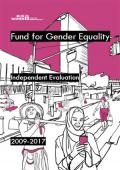
Resource | Publications,
This report contains the findings and recommendations of the first independent evaluation commissioned by UN Women’s Fund for Gender Equality (FGE), assessing USD 84 million invested through 121 grants across 80 countries since the FGE’s creation in 2009.
The evaluation found that the FGE implemented everything it set out to do in its strategies between 2009 and 2017. It directly touched the lives of an estimated 535,800 people, benefitting millions more through policy-level impact. The key contributions, it concluded, have entailed developing skills, addressing social norms to influence change, and establishing gender-responsive governance structures—all of which enabled greater women’s political and economic participation. The FGE helps legitimize women’s organizations and supports their learning through a culture of accompaniment. The evaluation also found that civil society sees the FGE as an important and necessary mechanism.

Resource | Presentations,
Presented by
Eamonn Murphy
Regional Director
UNAIDS Asia and the Pacific
September 5, 2018 Bangkok

Resource | Guidelines,
Nine out of 10 people living with HIV are adults in their most productive years. In the most affected countries, HIV takes a direct toll on markets, investments, services and education.
Ending AIDS is everybody’s business and will need collaboration between both the public sector and the private sector. Ending AIDS by 2030 needs effective action on: HIV testing, prevention, treatment and care, human rights solutions-oriented approaches by the business community are required in each of these areas.
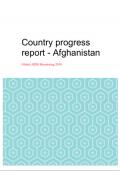
Resource | Publications,
At the 2011 United Nations General Assembly High-Level Meeting on AIDS that took place in June in New York, Member States adopted a new Political Declaration which contained new targets to effectively respond to the AIDS epidemic. The 2011 Political Declaration mandates UNAIDS to support countries in reporting back on progress made towards achieving the new commitments. It also provides for the UN Secretary-General to report regularly to the General Assembly on progress achieved in realizing these commitments.
Afghanistan is experiencing a low and concentrated HIV epidemic and HIV is a public health concern among the key affected and vulnerable populations.

Resource | Publications,
At the 2011 United Nations General Assembly High-Level Meeting on AIDS that took place in June in New York, Member States adopted a new Political Declaration which contained new targets to effectively respond to the AIDS epidemic. The 2011 Political Declaration mandates UNAIDS to support countries in reporting back on progress made towards achieving the new commitments. It also provides for the UN Secretary-General to report regularly to the General Assembly on progress achieved in realizing these commitments.
Till 1st December 2017, 5,586 HIV positive cases were detected in Bangladesh of whom 865 were new. Most of the newly identified people living with HIV (PLHIV) were concentrated in Dhaka (54%), Chittagong (21%), Khulna (10%) and Sylhet divisions (6%).





